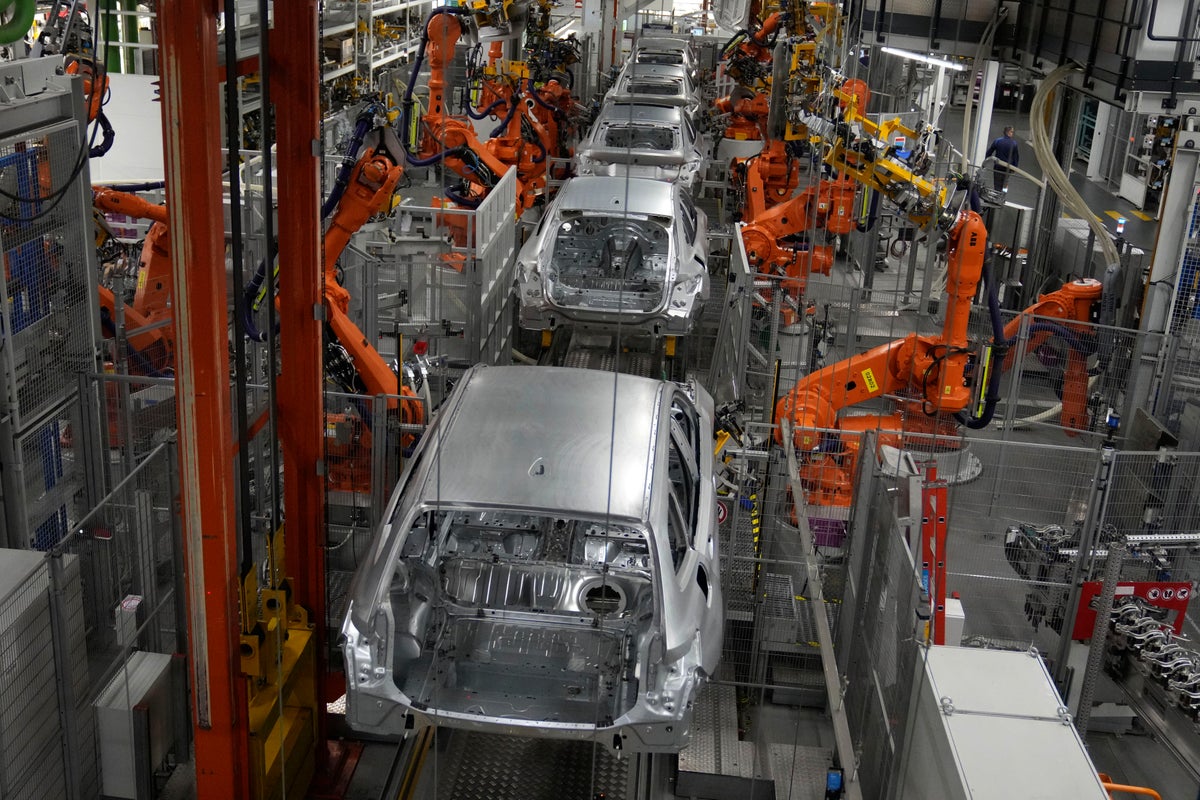From reproductive rights to climate change to Big Tech, The Independent is on the ground when the story is developing. Whether it’s investigating the financials of Elon Musk’s pro-Trump PAC or producing our latest documentary, ‘The A Word’, which shines a light on the American women fighting for reproductive rights, we know how important it is to parse out the facts from the messaging.
At such a critical moment in US history, we need reporters on the ground. Your donation allows us to keep sending journalists to speak to both sides of the story.
The Independent is trusted by Americans across the entire political spectrum. And unlike many other quality news outlets, we choose not to lock Americans out of our reporting and analysis with paywalls. We believe quality journalism should be available to everyone, paid for by those who can afford it.
Your support makes all the difference.
Read more
The German economy shrank by 0.3% in the second quarter compared with the previous three-month period, official data showed Friday, a significantly worse showing than was initially reported as tensions with the U.S. over tariffs simmered.
In a preliminary report at the end of July, the Federal Statistical Office said gross domestic product contracted by 0.1% in April-June compared with the first quarter for Europe’s biggest economy. That contributed to a lackluster showing for the 20-nation eurozone.
Full data showed output in manufacturing and the construction industry was worse than expected in June and household spending for the quarter also was revised downward, the office said Friday. The decline followed growth of 0.3% in the first quarter.
The German economy has shrunk for the past two years. Chancellor Friedrich Merz’s administration has made revitalizing it a top priority since taking office May 6.
It has launched a program to encourage investment and set up a 500 billion-euro ($582 billion) fund to pour money into Germany’s creaking infrastructure over the next 12 years. It is promising to cut red tape and speed up the country’s lagging digitization.
A group of dozens of companies last month pledged to invest at least 631 billion euros ($731.7 billion) in Germany over the next three years, a figure that included some previously planned investments but was designed to send a signal of confidence in the economy.
ING economist Carsten Brzeski said “after the surge in economic activity resulting from the U.S. front-loading of German exports in the first quarter, the economy experienced a reversal of the front-loading effect, and the first full-blown impact of U.S. tariffs (implemented in the second quarter) took effect.”
It could “take until next year before a more substantial recovery starts to unfold,” he said.
A European Union-U.S. trade deal was reached last month but remains a work in progress.
